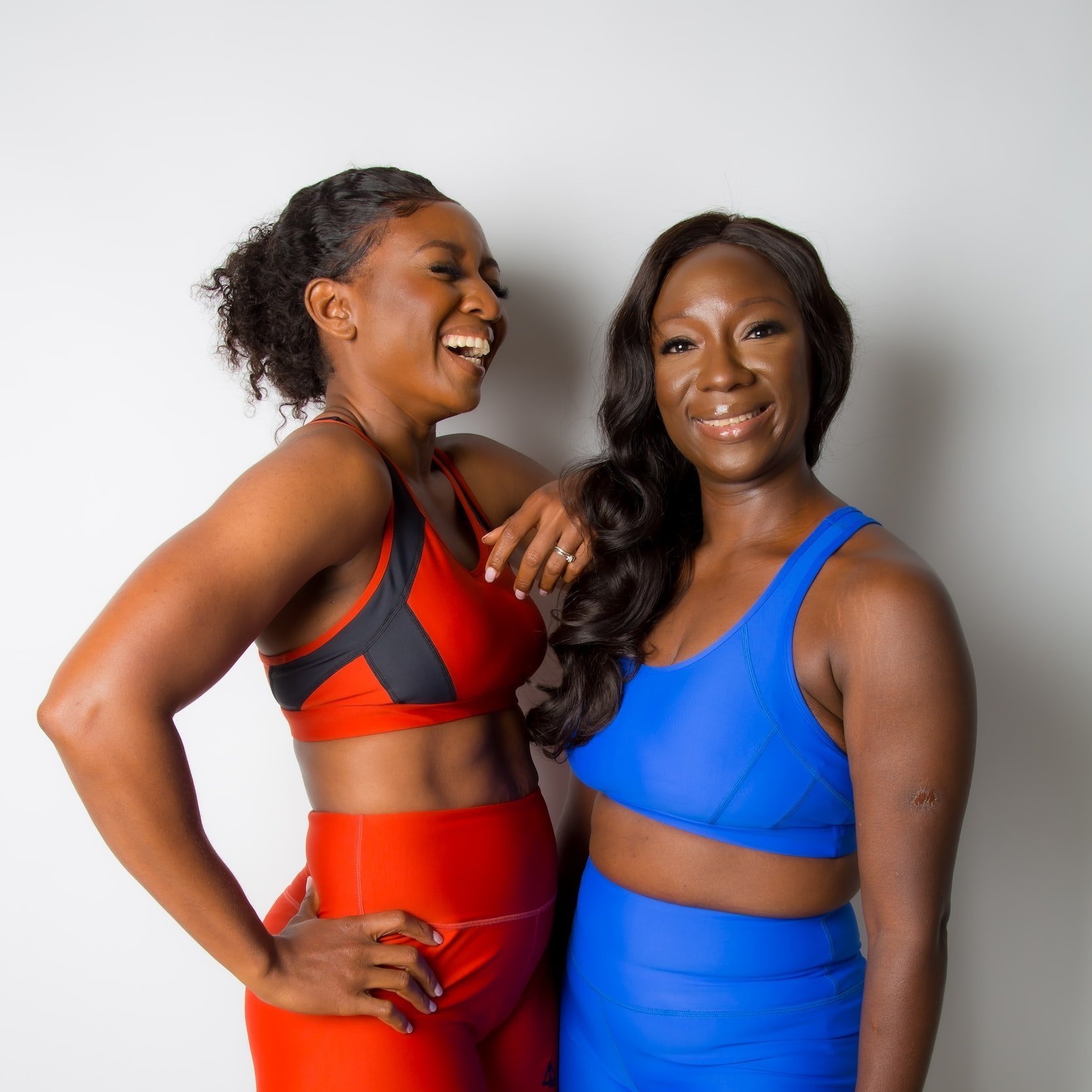Comprehensive Women’s Healthcare is Non-Negotiable
W&S Health & Wellness Editor
SHARE ON:
It’s hard to keep up with the news these days, but no one will forget the overturn of Roe v Wade this summer. It caused millions of American women to reevaluate their relationship with healthcare. For the first time in a long time, women were reminded how precarious their right to have agency over their medical care, and overall sovereignty of their body, really was.
So, what do we do about it? What tools are available to us for ensuring that women’s health needs are fundamentally ingrained into our healthcare system?
We think shifting toward comprehensive women’s healthcare might be a step in the right direction. In this post, we discuss what comprehensive women’s healthcare is, why it’s an effective way of challenging gendered medical discrimination, and some people and organizations you can support in making it a reality.
Hopefully, this post serves as a lightning rod for action for those looking for a solutions-based approach to dealing with America’s healthcare status quo.
In this Article
DISCLAIMER: Always seek the advice of your physician or other qualified health provider with any questions you may have regarding a medical condition or medical care. Never disregard professional medical advice or delay in seeking it because of information provided in this article. The content is for informational purposes only and should not be considered a substitute for professional medical advice, diagnosis, or treatment. Always consult with your healthcare provider to address any health concerns you may have. Before reading the following content, we also suggest reading our full disclaimer statement here.
Some of the links on this post might contain affiliate links. If you use any of these links to buy something we may earn a commission. For more information, please check out our disclosure statement. Thanks so much for supporting our free content!
What is Comprehensive Women’s Healthcare?
Comprehensive women's healthcare aims to address the unique health threats and needs that women face. Specifically, it targets how sex and gender impact the manifestation of various diseases and overall human health and well-being.
Although sometimes conflated, comprehensive women's healthcare differs from reproductive healthcare, although they are related. Reproductive healthcare focuses solely on physical, social, and mental health related to or around the reproductive system.
This makes reproductive healthcare a vital part of comprehensive healthcare, as nuanced reproductive health significantly impacts one's overall health and well-being. However, comprehensive women's healthcare aims to provide care beyond just the reproductive system, seeking to organize clinically appropriate care in tune with a patient's expressed needs on any given issue.
Comprehensive women’s healthcare may therefore look different across contexts. Culture, customs, and individual experiences all interact to dictate the ways by which a woman patient personally defines what it means to be “well”. Thus, their healthcare needs and preferences for what they understand as comprehensive women’s care will vary.
However, what all comprehensive care approaches have in common is a commitment to putting women patient’s diverse health needs at the forefront of their care. It prioritizes prevention over profit, consciousness over convenience, and overall understands that medical care, like womanhood, cannot be a monolith.
Wondering why you’re seeing ads? Check out our Disclosure Policy.
The Benefits of Making Comprehensive Women’s Health Services a Priority
Increases trust in the medical community
The fact that comprehensive women’s healthcare is context-dependent demonstrates why it cannot be uniform. Let’s, for instance, consider treating women dealing with mental health issues.
BIPOC women deal with significantly more cultural insensitivity regarding their struggles with mental health. In this way, their care plan would have to be deeply empathetic to this experience.
Some BIPOC might only succeed if working with healthcare professionals who share their experiences of medical racism. The same may be true for queer or trans women who also routinely experience medical discrimination, causing them difficulty trusting the medical community.
By providing healthcare informed by their unique needs, these women patients may find it easier to engage and follow their treatment plans. Ultimately, this makes women feel better. This, in turn, makes them healthier and more likely to seek care in the future and encourages women around them to do the same.
Unfortunately, the medical community’s history and current ability to deal with marginalized people is exceptionally poor in the United States. From gruesome experiments on enslaved black women that launched the practice of gynecology to forced sterilization programs during the end of Jim Crow, the American medical community owes racialized American women a HUGE apology.
However, more needs to be done to address these disturbing legacies. Comprehensive women’s healthcare, healthcare that cares about listening to women and their needs, might be essential for righting these wrongs.
Gives us better insights into how certain diseases and threats to well-being manifest
Medical research remains biased toward the experiences and needs of cishet, white males. According to a recent study, the gendered gap in medical research is so bad it has garnered a phenomenon known as the “Yentl syndrome.”
The Yentl syndrome identifies how women struggle with having their illnesses taken seriously, often having to go the extra mile by proving they are as sick as their male counterparts. This bias leads women patients to receive delayed, ineffective, inappropriate, harmful, or withheld from effective treatments.
This norm for women means that they are more vulnerable to being improperly diagnosed, causing many problems for the medical community. For example, when women aren’t appropriately diagnosed promptly, it makes it significantly more difficult for medical professionals to get a good picture of the nuances of how certain illnesses manifest.
There have been countless studies showing how gender and sex impact how diseases occur and the effectiveness of treatment. Cis women and trans women receiving medical attention will not always show symptoms or react to treatments as cishet males do.
As a result, women remain collectively more vulnerable to various complications with diseases (i.e., heart disease, mental disorders, osteoarthritis, etc.). Comprehensive women’s healthcare can aid in reducing these gendered health outcomes as it is centered on listening to patients and intertwining their needs within a clinically established practice.
Doing so stops biases in their tracks, as women’s needs are taken seriously and understood as non-negotiable in discovering clinically appropriate responses to their illnesses. Thus, women are given a better chance to be treated effectively overall.
What Comprehensive Women’s Healthcare Looks Like
Providing Accessible Tran-inclusive/Specific Care Services
Trans-inclusive care is essential to making comprehensive women’s healthcare a reality. Trans women are at an extreme healthcare disadvantage, with most health plans still using “services related to sex change” and “sex reassignment surgery” exclusions.
The lack of affordable healthcare is a threat to millions of Americans. Still, it becomes especially concerning for trans women who usually struggle to find physicians to meet their medical needs and funds to cover essential services excluded from their medical insurance—if they can even afford that.
This structural healthcare discrimination against trans women is partly born out of the still widespread transphobic attitudes in the medical community. Such attitudes, in combination with adverse social, political, and economic risk factors, make it difficult for trans women to receive safe, effective care. As a result, trans women remain a high-risk demographic for physical and mental health-related illnesses.
There is already an established clinical basis detailing and advocating why trans-inclusive care is essential for progressing to a healthier general population. For example, providing accessible trans-inclusive care might be linked to overall reduced rates of asthma, cardiovascular disease, and chronic depression in the US.
What’s missing is a collective commitment to making sure trans women can access it on every part of the healthcare spectrum. In this way, trans-inclusive clinical practices are a fundamental aspect of comprehensive women’s healthcare.
When we focus our healthcare standard on meeting the individual needs of women patients in line with clinical data, trans women are given more respect and humanity in the healthcare process.
Making Mental Health Services Part of Essential/Routine Care
Mental health can no longer be put on the back burner when addressing the multidimensionality of women’s health needs. 14% of women with uteruses who choose to give birth, for instance, will experience postpartum depression. These “baby blues” are triggered by the exhausting process of giving birth and ultimately changing a woman’s personal and professional life.
Postpartum depression is the most common pregnancy and childbirth complication there is. Yet, many women are not given the proper support they need to get through this challenging time due to lacking comprehensive women’s care services.
Giving birth in the US costs $14,768 on average, of which $2,655 is paid out of pocket. Paying for vital mental health services, which 42% of Americans report struggling to afford, can be an extra expense many women can’t take on.
Making comprehensive care a standard by effectively dismantling the disparities between mental health and physical health coverage and care will serve to make women and their new children better off.
Related to this, many studies have shown how women’s hormonal changes can make them feel mentally unwell. These factors may explain why depression and anxiety are more common in cisgender women than in cisgender men.
Whatever the cause, comprehensive health approaches are fundamental in catching the nuances between these links and understanding the most effective ways to treat those experiencing these issues. Women have the right to be mentally well, and comprehensive women’s care is vital in making this a reality.
People and Organizations Working to Make Comprehensive Women’s Healthcare a Reality
Obviously, these issues raised above are only the tip of the iceberg concerning the benefits and realities of comprehensive women’s healthcare. If you want to learn more about comprehensive women’s care and support those making the sacrifices to make it a reality, check out the fantastic women and organizations below!
1. The Fireweed Collective
The Fireweed Collective is a nationwide mental-health education and mutual-aid group. Their core programming includes weekly support groups for low-income people, immigrants, and new parents. Their framework is one of Healing Justice, achieved by centering the well-being needs of the most marginalized in society.
2. Dr. Uché Blackstock
Dr. Uché Blackstock is a Harvard-educated primary care and HIV physician recognized as a thought leader and influencer in HIV and health equity. She currently serves as the founder of Advancing Health Equity, whose mission is to help health-related organizations fight racial inequality in medicine. She’s also the founder and executive director of Health Justice, a consultancy that supports health-related inequities in the communities they serve.
3. Alice Wong
Alice Wong is an activist and media creative committed to highlighting the disparities in access and representation for those with disabilities. She’s responsible for launching the Disability Visibility Project in 2014, aimed at recording the oral histories of people with disabilities. It has since become a media powerhouse; now, over 500 stories have been elevated through her platform. Wong is also the recipient of the coveted Disability Futures Fellowship, whose funds she plans to use to expand the reach of her disability advocacy continuously.
The Bottom Line on Comprehensive Women’s Healthcare
Comprehensive women’s healthcare and services are a non-negotiable facet of creating a more just future for American women. While we can’t go back and change the past, we can for sure begin to put systems and cultures in a place like these that make women safer and healthier.
The healthcare system we have today simply isn’t working for most people, but women are especially vulnerable. Hopefully, with more women learning about comprehensive care as an option, more women will demand and advocate for it. Doing so will be a long, involved process, but it can be done.
In the meantime, remember to use your voice in elections and spread the messages of women’s healthcare changemakers dedicated to making us all healthier.












